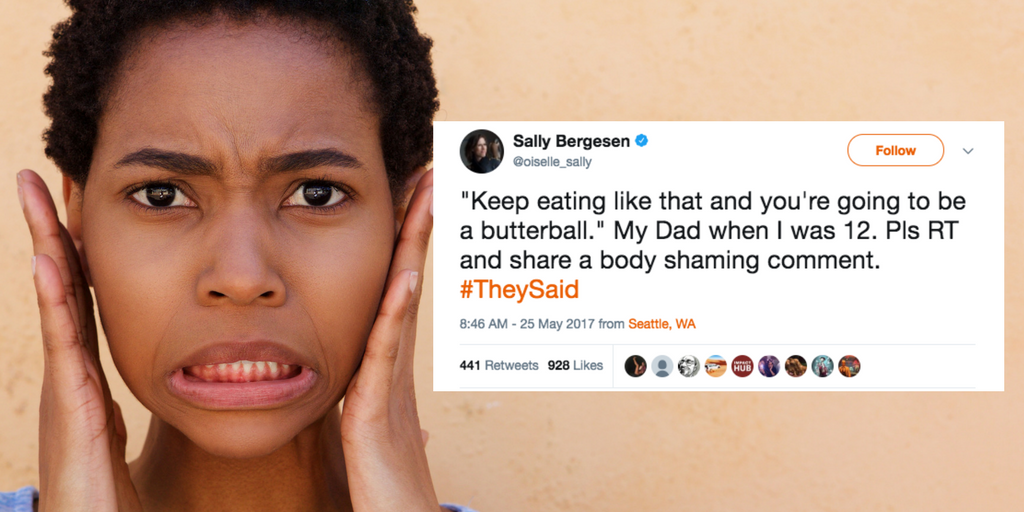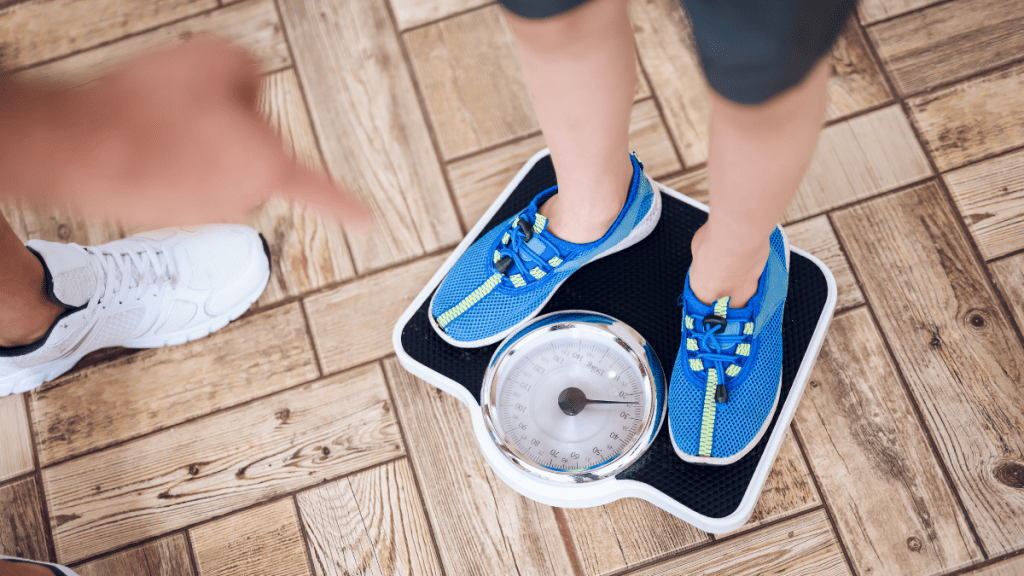
A guide for parents about weight stigma and eating disorders
What is weight stigma?
Weight stigma is the belief that large bodies are bad and thin bodies are good. Also known as fatphobia and anti-fat bias, weight stigma is a bias against people based on their body size. It is a dangerously under-recognized form of discrimination in our society and has many known harms. When a person has internalized weight stigma, they apply this discriminatory bias against themselves. This can lead to negative body image and dangerous diet behaviors.
How does weight stigma impact eating disorders?
Weight stigma is both a cause and a symptom of eating disorders. When a person believes that fat bodies are bad, they judge people who are fat and judge their own bodies for having fat. Since having fat is a natural fact of life for almost all bodies, anti-fat bias can have serious negative consequences for both physical and mental health.
Understanding weight stigma in eating disorder treatment
Weight stigma contributes to under-diagnosis and under-treatment of eating disorders in all but the thinnest patients. Additionally, weight stigma is both common and destructive within eating disorder treatment. Unfortunately, this means that a major cause of eating disorders is often perpetuated by the people and institutions that treat eating disorders.
Where is weight stigma?
Weight stigma is everywhere in our culture – in doctor’s offices, classrooms, sport competitions, and at home. While we can’t change society overnight, we can take immediate action to reduce weight stigma in our homes. This is one of the most important acts of recovery that parents can implement starting today.
By changing your beliefs about weight, you support eating disorder recovery.
Parent-Friendly ❤️ Neurobiology ❤️ Attachment ❤️ Non-Diet ❤️ Health At Every Size®
Eating disorders are more complex than a mental obsession with body size and weight. However, an obsession with body weight is a huge cause and critical symptom of most eating disorders. It’s very hard to recover from an eating disorder without accepting your body’s natural weight. Recovery requires releasing the belief that you need to control your body.
Our kids with eating disorders come by their fear of fat naturally because our culture is filled with weight stigma. This belief is often cloaked in concern for people’s health. However, it is rooted in disgust and contempt of fat bodies. Weight stigma is anti-health.
In some ways our culture is finally starting to grapple with weight stigma. There is some acknowledgement that its health impacts are terrible and it’s a major cause of eating disorders. At the same time, our kids are being spoon-fed weight stigma from infancy. They are literally surrounded by it. And in many ways, weight stigma is getting worse.
Luckily, there’s a lot you can do to change how weight stigma is managed in your own home. By working on anti-fiat bias at home, you can support your child’s eating disorder recovery.
About Weight Stigma

Weight stigma is stereotyping and discriminating against people based on their weight. It reflects social attitudes toward body size and impacts how fat people are treated in the world. It’s also a major contributor to eating disorders. The pursuit of being “not fat” to avoid weight stigma involves eating disorder behaviors, also known as dieting.
It’s really common for people to believe there is justification in *a little bit* of weight stigma. Maybe it’s healthy? Isn’t being fat bad, so maybe a little bit of criticism when people weigh more is good? But no, that’s not true. Weight stigma has zero benefit to health and it causes tremendous damage, wherever you fall on the BMI scale.
A common perception is that a little shame or stigma might motivate people to lose weight, but that is not what we see in research. In fact, when people experience weight stigma this actually contributes to unhealthy eating behaviors, lower physical activity, and weight gain.
Rebecca Puhl
Dangers Of Weight Stigma

After controlling for BMI and health status, weight stigma is associated with:
- Weight gain
- Eating disorders
- Extreme dieting
- Binge eating
- Self-induced vomiting
- Negative body image
- Low self-esteem
- Decreased physical activity
- Health care avoidance
- Mortality/death
- Substance use
- Suicidality
- Depression and anxiety
Clearly weight stigma is a serious danger to our health.
Weight Stigma Is Everywhere

Despite clear evidence that weight stigma is harmful, research indicates a 66% rise in weight-based discrimination. More than 40% of U.S. adults report experiencing weight stigma at some point in their life. Additionally, and 22%-30% of people reported their first experiences of weight stigma happened by age 10.
Weight stigma is woven into the fabric of our culture. Parents, relatives, coaches, teachers, and doctors are the most common adults to perpetuate weight stigma with children. Unfortunately, even some eating disorder treatment professionals are steeped in weight stigma. These people intend to support healthy lifestyles. Unfortunately, they accidentally echoing society’s distorted beliefs and disordered behaviors.
Weight Science

Weight stigma is built on the false belief that people are in control of their weight. But this is a faulty premise. Here are the real contributors to weight:
Biological factors: genetics, epigenetics, neural wiring, age, hormones, metabolism, medications, history of weight cycling, etc.
Environmental factors: chemicals and toxins, air quality, access to healthy food, access to outdoor spaces, safe walk-able spaces, etc.
Social factors: family dynamics, poverty, food insecurity, sexism, racism, weight stigma, homophobia, transphobia, discrimination, etc.
Psychological factors: trauma, abuse, neglect, chronic stress, anxiety, depression, emotional dysregulation, internalized weight stigma, etc.
Behavioral factors: while a person can intentionally lower their weight temporarily, almost everyone will regain the weight, often plus more. Intentional weight loss is associated with weight gain, poor physical and mental health, and eating disorders.
A Non-Diet Approach to Health

A non-diet approach to health has been adopted by the eating disorder community as a path to healing, health, and wellness. This typically follows the approach known as Health At Every Size® (HAES®) :
- Acknowledge weight stigma and work to overcome it. This includes internalized forms of judgment against your own weight and externalized forms in which you are judging others based on their weight.
- Eat in a way that is both flexible and intentional and recognizes the inherent pleasure that goes along with eating.
- Move your body in a way that feels good and promotes mental health and enjoyment.
- Avoid intentional weight loss, which is almost always temporary and has negative health consequences.
- Care for and respect the body you have, not the body you wish you had.
HAES® demands respect and dignity for the body and mind of each individual. Rather than dominating bodies with rules and rigid beauty standards, HAES® says we can pursue health in any body. It has been clinically proven as a better way to approach health.
Your Child’s Weight

Your child’s weight will likely change during eating disorder treatment. While not everyone gains weight in recovery, it is often a requirement and far from unusual. Watching your child gain weight will likely be very hard for you. This is totally understandable since we live with so much weight stigma.
Please get support and guidance for yourself so that you don’t accidentally pass along fear, worry, and disgust. Our kids sense how we feel and they see themselves reflected in our eyes. Therefore, if you look at their body and feel fear and worry about their weight, they will feel that, too. Instead, practice seeing and fully accepting the person you love inside the body. This will make a huge difference in how your child feels about their weight.
Next, work on how you respond to body-bashing and fat talk. This applies when you’re talking about your own weight, talking about your child’s weight, and talking about weight in general. If you say things that suggest that weight gain is bad, you will perpetuate weight stigma. I know how hard this is to change, but it’s worth the investment. Changing your beliefs and language about weight will go a long way to helping your child recover.
A Policy of Body Respect
We suggest implementing a Policy of Body Respect in all households with an eating disorder.
Body Respect: Bodies come in different shapes and sizes, and all people – of all sizes – are worthy of dignity & respect.
Self Respect: We speak about our own bodies with respect, and we don’t criticize or speak cruelly about our bodies.
Respect For Others: We speak about other bodies with respect, and we don’t criticize or speak cruelly about other bodies.
Family Boundaries: As your parent, I will do my best to protect you from body shaming. I will respectfully speak up when I witness body shaming inside and outside this house.
Get a free copy of these principles out and post them in a prominent place.

Free Cheat Sheet: Body Positive Parenting Essentials
⭐ Support your child in developing a healthy body image
⭐ Learn the essential steps and family rules you need to have in place for positive body image.
⭐ Make your home more supportive for everyone with six simple steps that anyone can do.
< More About The Causes Of Eating Disorders
Key Articles About Weight
free cheat sheet: Parenting A Child With An Eating Disorder
⭐ Get ready for recovery and find out how you can prepare yourself for maximum success.
⭐ Find out the essential steps and family rules you need to have in place for recovery.
⭐ Make your home recovery-ready with six simple steps that anyone can do.
More Articles About Weight Stigma and Eating Disorders

Non-Diet/Health At Every Size® Fact Sheets, Guidelines, and Scripts
- Fact Sheets About Weight Stigma, Diet Culture, Kids and Diets, and More
- Non-Diet Parent Guidelines
- Non-Diet Parent Scripts About Responding to Fat Talk, Diet Talk, and More
- What to Say/Not Say When Talking About Bodies and Food













